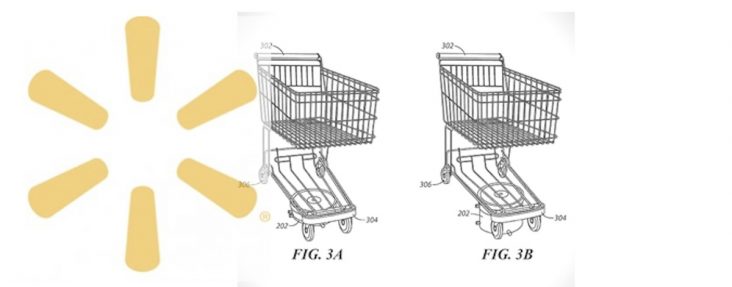Wal-Mart Stores’ patented technology aimed at better sales, improved shopper experience
by November 2, 2016 7:36 am 243 views

Wal-Mart Stores isn’t waiting on others to patent technology that makes business operations run more efficiently and shopping more convenient. In the past three months, the retail giant has been granted 21 patents from the United States Patent and Trademark Office.
While several of the recent patents deal with internal operations and supply chain process, the retailer is also focusing on the shopper experience in ways that could boost its overall sales.
On Oct. 18, Wal-Mart was granted a patent for a system with the ability to adjust map navigation paths in retail stores for shoppers who use their mobile devices to help them locate items in a large brick and mortar stores. The patent description notes Wal-Mart and other retailers already offer limited navigational mapping of products in stores. But Wal-Mart inventors Benjamin Pellow, Emily Poplawski and Stephen Aase saw an opportunity for Wal-Mart to adjust its mapping navigating system so it has the capability to suggest other products to shoppers as they walk to the requested item location.
The patented invention is a system that locates the position of the wanted item in the store and searches past records for this item. The system then is configured to suggest at least one product on the path that has connections with the wanted item. The system can also suggest an adjusted pathway to the wanted item with more suggestions for other products.
Another patent approved Sept. 24 is for a process that determines how close a customer is to the checkout register using sound collection software. The mobile self checkout software can record and analyze ambient noise to determine when the customer is in the checkout line. It can also track a customer’s progress through the checkout line.
The patent description notes that labor expense in retail for checkout is significant and the checkout process itself is often seen as tedious and time consuming by the customer. The mobile-self checkout software detects noise and may interact with the customer allowing for a quicker checkout process. The technology uses a machine-readable code that connects the customer’s mobile phone and the checkout terminal. This would allow the customer to scan some of the items with their phone to speed up the process.
Several of the recent patents deal with radio frequency identification (RFID) technology. A patent approved Sept. 14 is a system and method for estimating bags necessary for items purchased by a customer. The patent notes this technology application could be needed as more of the checkout process uses mobile devices and electronic pay.
The application receives a transmission indicating an intention by a consumer to purchase an item. Information about the item is retrieved from a database. The information about the item is associated with the consumer in a transaction. The number of bags used for the transaction is estimated. The estimation can be created using the weight and volume of a transaction. The estimation can also take into consideration the fragility, crushability, temperature-sensitivity, or cross-contamination possibility of items. The estimated number of bags is forwarded to a mobile device. The estimated number of bags is used to determine the likelihood of unpurchased items being taken by the consumer.
Other recent patents deal with helping customers manage shopping lists electronically, improving search functions for online orders, and continuing to work on mobile checkout systems that have limited risk for the retailer and provide optimum convenience for shoppers.
Wal-Mart has secured more than 70 patents so far this year for processes, technology applications and physical items used in its stores such as smart carts, according to the federal patent offices.
